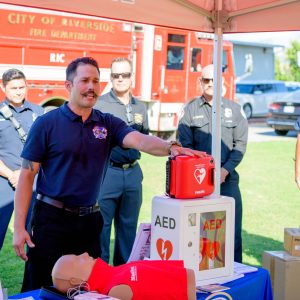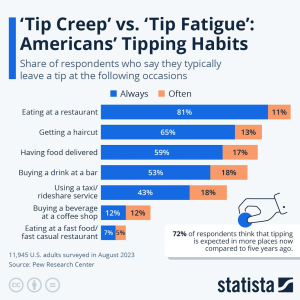 View Winners →
View Winners → 
In the San Gabriel Valley, parents go to great lengths to instill in their children good learning habits at a very young age. A majority of them enroll their kids in competitive high schools to ensure that they earn admission to some of the most prestigious universities in the country.
My only daughter attended an over-a-century-old K-12 independent school in Pasadena, an institution renowned for its rigorous academic and wide-ranging athletic programs. I was confident she would be well prepared for the challenges of university. However, the school administrators and faculty did not discuss the college admissions process until the spring of junior year. They felt that students should enjoy high school and campus life – there was plenty of time to work on college applications.

It was when my daughter and I first met with her college counselor that we realized that while she was academically ready for college, she hadn’t been fully apprised of what admissions officers were looking for from applicants. And because she had to scramble to put together a resume that looked impressive, the next 18 months proved more stressful than if she had been preparing for college application since 9th grade.
Happily, it all turned out well for my daughter and she graduated from high school in the spring of 2014. She then went to the University of St Andrews in Scotland. About a quarter of the seniors in her class of 97 students matriculated to the Ivies and the rest of them attended the most selective universities in the United States.
For my family, the college admissions experience felt like getting sucked into a vortex. But I learned that we weren’t alone – many parents felt lost and powerless to assist their children through the process. And so, in January of 2015, I launched this monthly college search guide to help parents and their children navigate the complicated admissions process. And because education is very important to me, I also began writing about schools in the area. Through the years, I have met and interviewed many schoolmasters, parents, and students who shared their experience and opinions on issues that affect them.
Writing this admissions process series has been a fulfilling endeavor for the past eight years. It is therefore with a certain degree of sadness that I’m letting you know that this will be my last college search guide. If your child is a senior who’s eagerly looking forward to graduation and going to university in the fall, I hope that this monthly guide has helped them (and you) get to the next stage of their educational journey. Thank you for the privilege!
FRESHMAN
This is the final call for 9th graders who need to improve their grades! The GPA is the most important component of your children’s college application. If their marks are not adequate for college acceptance requirements, they need to confer with their college counselor to arrange for remedial summer classes.
Your children should have already registered for internships and planned their summer volunteer work. Admissions officers look for students who have demonstrated sustained community involvement. It isn’t the quantity but the quality of activities that’s important – they want to gauge the depth of students’ intellectual and ethical engagement to a given cause.
The summer after their freshman year is the time for your children to find activities that truly speak to their interest and passion. Let them choose one that really resonates with them which they should carry through their four years in high school.
It’s also a great time for your children to read books. Encourage them to explore various genres and different authors. At the very least, reading will help them expand their vocabulary and expose them to different writing styles. This will come in handy when they write their personal statement and supplementary essays for their college application.

SOPHOMORE
Sophomore year is when your children have fully transitioned into high school. They are comfortable about how this phase fits into the whole secondary school experience. They have taken the practice PSAT as a preparation for junior year when the results determine their eligibility for the National Merit Scholarship. They have also taken some AP tests, if they took an AP course.
Hopefully, your children have also done well in their studies, have maintained good grades this entire year, and have prepared for final exams. Admissions officers expect grades that are consistent, and, if their freshman marks weren’t that great, their sophomore grades should at least show improvement over last year’s.
Make sure your children have lined up their summer activities. They will probably have more choices than they had the summer of freshman year when there were safety protocols in place, but they should try for something related to what they did last summer. Admissions officers want to see commitment to a particular interest.
JUNIOR
Make sure your children have registered to take all the required standardized tests for college admissions. While these are not required by the Cal State and UC systems, they are still part of the application for some and, if your children are applying through early action or early decision to these schools, they need to take the SAT or ACT this summer.
Your children’s final grades are extremely important! Eleventh grade is the last complete year that college admissions officers will see on the application and they expect grades that are either consistent with, or better than, the first two years’.
SENIOR
The high school graduation is a rite-of-passage that signifies a teenager’s first step into adulthood. Take the time to mark this occasion with a celebration!
If your children are still sweating it on the waitlist of their first-choice college, they need to ensure their final grades are terrific! They should keep up with all their schoolwork and send the college admissions officers any updates on awards and honors they receive. They should ask their college counselor if an additional letter of recommendation might be helpful. Keeping in touch with the admissions office reinforces their interest in attending the school if accepted.
They should have put a deposit on their second-choice school to guarantee them a place for the incoming class in the fall. Although, if they come off the waitlist on their first choice, they will lose this deposit.
Be there for your children to support them whatever the outcome of their college application; it has been an important learning experience. In the end, though, what matters is not where they had been accepted. The college they attend will not guarantee success in the real world; it’s how they use their education that determines how well they do in life.










































































































